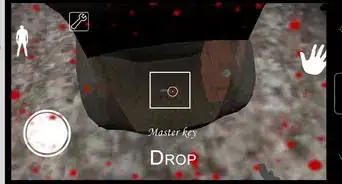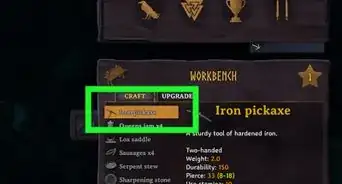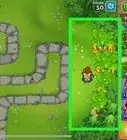This article was co-authored by wikiHow staff writer, Travis Boylls. Travis Boylls is a Technology Writer and Editor for wikiHow. Travis has experience writing technology-related articles, providing software customer service, and in graphic design. He specializes in Windows, macOS, Android, iOS, and Linux platforms. He studied graphic design at Pikes Peak Community College.
There are 7 references cited in this article, which can be found at the bottom of the page.
This article has been viewed 2,076 times.
Learn more...
Do you want to get turtle shell scutes in Minecraft? Scutes are extremely useful because they can be used to craft a turtle shell helmet, which grants +2 armor, 10 seconds of underwater breathing, and improved underwater vision.[1] You can then use the turtle shell helmet to make a Potion of Turtle Master, which grants the player IV Resistance and IV Slowness.[2] Unlike other items, turtle shell scutes cannot be collected by killing mobs or harvesting natural resources. Baby turtles drop 1 scute when they mature into an adult. This wikiHow teaches you how to get and farm scutes and what they can be used for.
Things You Should Know
- Baby turtles drop one scute when they mature into an adult.
- You can get turtles in the mood to breed, as well as increase the speed at which baby turtles mature by feeding them seagrass.
- Turtles will only lay eggs on their home beach.
Steps
Breeding Turtles
-
1Find at least two adult turtles. Like other animals, turtles can be bread and farmed. Turtles can be found on the sand of beaches of the overworld.
- Turtles do not spawn on snowy or stony beaches.
- Turtles will only lay eggs on their home beaches. You cannot lure a turtle away from its home beach to another beach and get it to lay eggs.
-
2Craft a pair of sheers. Sheers can be crafted from two iron bars using a crafting table.
- Iron bars can be crafted by smelting iron ore in a furnace.
- iron ore can be found in caves. It's the stone blocks with the yellowish spots on them. You can mine iron ore using a stone pickaxe or stronger.
Advertisement -
3Gather seagrass. Seagrass can be found at the bottom of bodies of water. Equip the sheers and use them to cut the seagrass underwater. The seagrass will float to the top. Swim over the cut seagrass to collect it.
-
4Feed the seagrass to the turtles. Locate two adult turtles in close proximity to each other. Feed them both seagrass to get them in the mood to mate. When you see hearts above both turtles, they are mating. After mating, one turtle will start digging to lay eggs. They can lay up to four eggs in a cluster on one sand block.
- You can feed turtles immediately after mating to get them to breed again.
-
5Wait for the eggs to hatch. Turtle eggs need to have direct access to moonlight at night. It takes approximately 4- 5 in-game days for turtle eggs to hatch.
- Turtle lays egg and egg hatches only on Sand or Red Sand blocks and not on any other blocks.
- Warning: Avoid walking over the cluster of eggs and try to prevent mobs from walking over them. This can trample the eggs and break them. You may want to build a fence and place torches around them to protect them from hostile mobs. [3]
Collecting Scutes
-
1Gather more seagrass. Use the sheers you crafted to cut more seagrass from the bottom of a body of water. Swim over the cut seagrass to collect it.
-
2Feed the seagrass to the baby turtles. After hatching, baby turtles will search for the nearest water block within a 47x47 block radius. It takes approximately 1 in-game day for the baby turtles to mature into adults. Feeding seagrass to baby turtles accelerates the time it takes for them to mature by 10%. It takes approximately 10 feedings to mature them completely.
-
3Collect the scutes. Each baby turtle drops one scute when it matures into an adult. Walk over the scutes to collect them. Once the babies have matured into adults, you can feed them more seagrass to get them to mate and repeat the process all over again.
Building a Scute Farm
-
1Find a beach with turtles. You need at least two turtles to breed them. It should be the turtles' home beach. Turtles will not lay eggs anywhere except their home beach.
- The beach should be relatively flat and level with the water. If there are too many elevated sand blocks too close to the water's edge, remove them to flatten the surface of the beach. You'll need a flat area that is about 6x6 blocks wide right next to the water's edge.
-
2Build a fence around two adult turtles. Once you find two adult turtles, build a fence around them to barricade them in and keep them from escaping. The edge of the enclosure should go right up to the water's edge. Make sure the turtles have at least 4x4 blocks of space inside the enclosure.
- You can craft once fence piece out of 4 wooden sticks and two wooden plank blocks using a crafting table.
- Make sure the back of the enclosure isn't too far away from the water's edge, or this could make it harder for the baby turtles to get to the water.
-
3Shape the entrance area to the water. The enclosure should come right up to the water's edge. Decide where the turtles are going to enter the water. Make sure the first drop-off next to the enclosure is 2 blocks deep below the water. Then make sure the next drop-off after that is three blocks deep below the water.
-
4Build an underwater enclosure next to the land enclosure. You can build the underwater enclosure out of wooden planks, or anything you want. Building an underwater wall that extends 5 blocks from the land portion of the enclosure and extends 4 blocks underwater. Then build a floor for the underwater enclosure. The bottom of the underwater enclosure should be 3 blocks deep after the second drop next to the water's edge.
- The floor can be built out of sand or whatever building material you are using to make your enclosure.
-
5Extend the fence around the underwater enclosure. Now that you have an underwater enclosure, extend the fence along the top of the walls of your underwater enclosure.
- If you want the adult turtles to be able to leave the enclosure and come back, do not build a fence on top of the wall furthest from the water's edge. Instead, build a row of slabs along the top of that wall from the top of the fence on one side, to the top of the fence on the other side.
-
6Place torches along the fence on all sides of the entire enclosure. You can craft torches from wooden sticks and coal or charcoal using a crafting table. Place the torches along the fence of your enclosure to ensure the entire enclosure is well-lit. This will prevent any hostile mobs from spawning inside your enclosure.
-
7Cut a hole in the wall next to the wall furthest from the water's edge. Go underwater and cut a hole in the wall on the left or right side of your underwater enclosure next to the wall furthest from the water's edge. The hole should be two blocks tall starting from the bottom of the enclosure.
-
8Place a chest in the wall along the bottom inside the hole. Place the chest in the hole you just cut at the bottom of the enclosure Make sure it is facing outside the enclosure wall.
- You can craft a chest out of 8 wooden plank blocks using a crafting table.
-
9Place an upside-down stair block above the chest. The tall side of the stair block should be facing inside the enclosure and the stairs facing out. This will ensure that the hole is filled in on the inside of the enclosure, blocking anything from getting out. But it will also allow enough room for you to open the chest from the outside of the enclosure. The chest is where your scutes will be collected.
-
10Place a row of hoppers from the chest to the other side of the enclosure. Place the first hopper next to the chest on the inside of the underwater enclosure. Continue placing each subsequent hopper next to the last one until you reach the wall across from the chest. You should have a row of hoppers at the bottom of the underwater enclosure at the furthest end.
- You can craft a hopper from a chest and 5 iron bars using a crafting table.
-
11Place two rows of temporary blocks on top of the hoppers. You can use any building material you want. Place the first row of temporary blocks on top of the row of hoppers. Then place another row of temporary blocks next to the row of blocks on top of the hoppers.
-
12Place three rows of temporary blocks on top of the other two rows. Place another row of temporary blocks on top of the two rows you just created. Then place an additional row next to the inner-most row on top.
-
13Break all the temporary blocks. Break the temporary blocks on top first. Then break the temporary blocks underneath next. This should create a cascading water effect where the water slopes down towards the hoppers. This is what will push the baby turtles and your scutes toward the hoppers.
-
14Place a row of slabs on top of the hoppers. This will further shape the water flow leading to the hoppers and create a landing space for the baby turtles.
- Slabs can be crafted from any three building blocks of the same type using a crafting table.
-
15Place a row of blocks in front of the hoppers. This will prevent anything from getting under the hoppers. Your scute farm should be ready to go.[4]
- If you want your adult turtles to be able to enter and leave, place an additional row or slabs along the top of the underwater enclosure next to the opening in the fence furthest from the water's edge.
Farming Scutes
-
1Feed the turtles seagrass to get them to breed. Gather some seagrass from the bottom of a body of water using sheers. Then feed the seagrass to the turtles inside the enclosure to get them to breed. You can feed the turtles repeatedly to make them lay as many eggs as you want.
- You create an easy entry into the enclosure by placing some carpet on top of one of the fence posts around the enclosure. This will allow you to jump on top of it and get in while blocking hostile mobs from getting in or turtles from getting out.
-
2Break the fence along the water's edge. Once you have a large number of turtle eggs in the sand, go ahead and break the fence alongside the water's edge so that the turtles can access the underwater portion of your enclosure.
-
3Wait for the eggs to hatch. It can take about 4 or 5 days for the eggs to hatch. When the eggs hatch, the baby turtles will usually head straight for the water, where they will collect on top of the slabs above the hoppers.
- If the adult turtles are blocking the babies from getting to the water, you can give them a whack to get them to move out of the way.
-
4Wait for the baby turtles to mature. When they mature into adults, they will drop a scute, which will be collected inside the hoppers. You can find the scutes collected inside the chest underwater alongside the outside of the wall. This gives you a convenient place to collect all your scutes as well as prevent them from despawning if you are off doing other things.[5]
Crafting a Turtle Shell Helmet
-
1Collect five scutes. You can collect scutes by breeding turtles and raising the babies until adulthood, or you can build a scute farm.
-
2Select a crafting table. Crafting tables are one of the most commonly crafted items in the game. Select any crafting table to open it.
-
3Place three scutes along the top row of the 3x3 grid. Drag three scutes from your inventory into the top row of the 3x3 crafting table grid.
-
4Place two more scutes in the left and right blocks of the 3x3 grid. They should go just below the row on top. The scutes should form the shape of a helmet inside the 3x3 crafting grid.
-
5Drag the helmet into your inventory. Once all the scutes are in place, you should see a turtle shell helmet in the large square next to the 3x3 grid. Drag the turtle shell helmet into your inventory to collect it.
-
6Equip the turtle shell helmet. Once you have the turtle shell helmet in your inventory, open your inventory. Then drag the turtle shell helmet to the icon that resembles a head next to the image of your avatar. The turtle shell helmet gives you +2 armor, 10 seconds of underwater breathing, and improved underwater vision.
Making a Potion of Turtle Master
-
1Travel to the Nether. To craft a Potion of Turtle Master, there are a few items you need to get from the Nether. To get to the Nether, you need to build a Nether portal, and travel through it.
- You can build a nether portal by constructing a frame that is at least 4x5 blocks tall out of obsidian. Then light the inside of the frame using flint and steel. You can mine flint by digging through gravel with a shovel. You can craft flint and steel from flint and an iron bar using a crafting table.
- Obsidian is found where lava touches still water. It must be mined with a diamond pickaxe.
-
2Gather the materials you need from the Nether. There are three items you need to get from The Nether in order to craft a Potion of Turtle Master. They are as follows:
- Blaze Rods: Blaze rods are used to craft a brewing stand, as well as craft blaze powder, which is needed to operate the brewing stand. You'll need a few blaze rods. You can get them by killing blazes in the Nether.
- Nether Wart: Nether wart is a red plant that grows in the Nether. It can usually be found inside fortresses in the Nether. You can harvest nether wart by attacking it and then walking over it to pick it up.[6]
-
3Craft a brewing stand. A brewing stand allows you to craft potions. You can craft a brewing stand from 3 cobblestone blocks and a blaze rod using a crafting table. You can get cobblestone blocks by mining stone blocks with a pickaxe.
-
4Craft some blaze powder. You can craft blaze powder from one blaze rod using a crafting table.[7]
-
5Craft a glass bottle. A glass bottle can be crafted from three glass blocks using a crafting table. You can make glass blocks by smelting sand blocks in a furnace. To craft a glass bottle, select a crafting table and place a glass block in the upper-right, upper-left, and center squares of the 3x3 grid. Then drag the glass bottle into your inventory. [8]
-
6Fill the glass bottle with water. Once you have a glass bottle, you can fill it with water by equipping it and then selecting a water block from any source of water.
-
7Craft a turtle shell helmet. You can craft a turtle shell helmet from five scutes using a crafting table.
-
8Select the brewing stand. You can select the brewing stand by aiming the reticle at it and right-clicking or pressing the left trigger on your game controller. This opens the brewing stand interface.
-
9Place the blaze powder over the icon that resembles a flame. It's in the upper-left corner of the brewing stand interface. The blaze powder acts as fuel to heat the mixture.
-
10Place the water bottle over one of the icons that resemble a bottle. There are three icons at the bottom that resemble a bottle at the bottom of the interface. Place the glass bottle filled with water over one of them.
-
11Place the nether wart in the square above the bottle icons. It's the blank square at the top of the interface that is connected to the three icons that resemble bottles. Placing the nether wart in this square will brew an Awkward Potion, which has no effects.
-
12Place the turtle shell helmet in the square above the bottle icons. It's the same square you put the nether wart in. Place the turtle shell helmet in this square to brew a Potion of Turtle Master. The Potion or Turtle Master grants IV Resistance, and IV Slowness. In other words, it allows you to take a lot of damage, but also makes you very slow.
References
- ↑ https://www.digminecraft.com/armor_recipes/make_turtle_shell.php
- ↑ https://minecraft-archive.fandom.com/wiki/Turtle_Shell
- ↑ https://minecraft.fandom.com/wiki/Turtle
- ↑ https://www.youtube.com/watch?v=NhgEnoRl66Q&t=22s
- ↑ https://www.youtube.com/watch?v=NhgEnoRl66Q&t=22s
- ↑ https://www.digminecraft.com/materials/make_nether_wart.php
- ↑ https://www.digminecraft.com/brewing_recipes/make_blaze_powder.php
- ↑ https://www.digminecraft.com/brewing_recipes/make_glass_bottle.php
About This Article
1. Collect seagrass at the bottom of water using sheers.
2. Locate at least 2 adult turtles on their home beach.
3. Feed the turtles seagrass to get them to mate.
4. Wait 4-5 days for the eggs to hatch.
5. Feed the baby turtles seagrass to mature them quicker.
6. Wait for the baby turtles to mature into adults.
7. Collect the scutes they drop when they mature into adults.
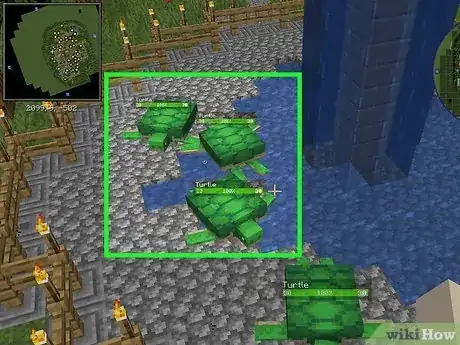
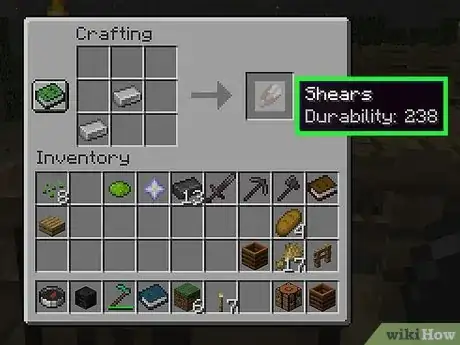
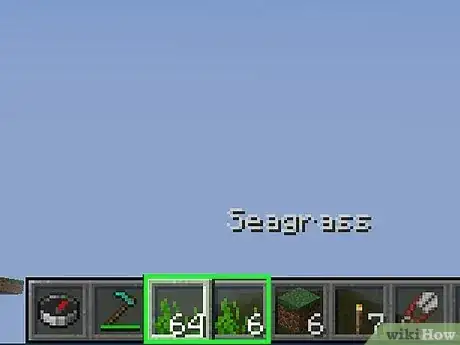
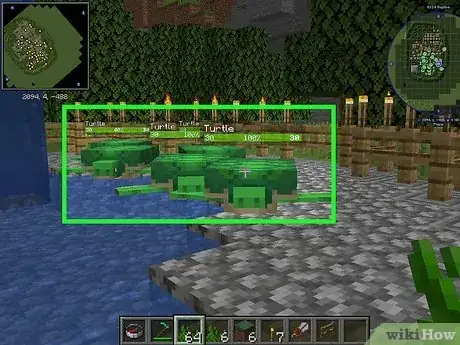
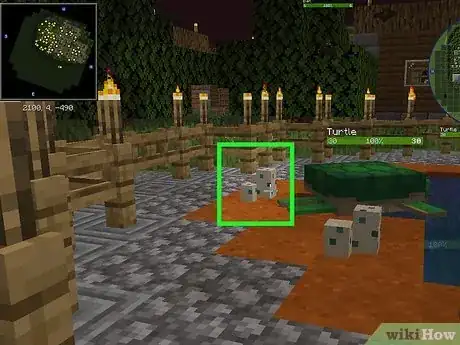
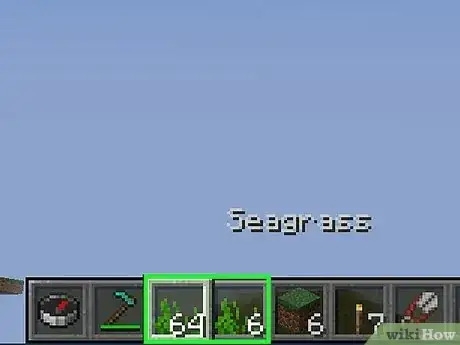
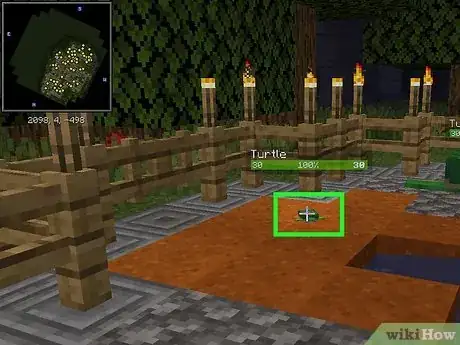
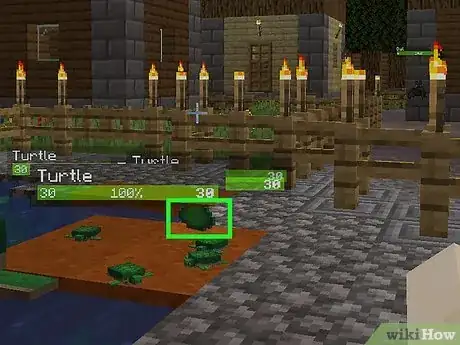
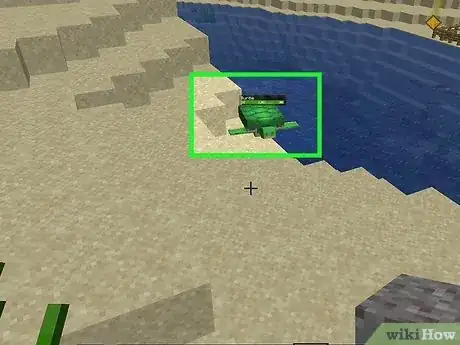
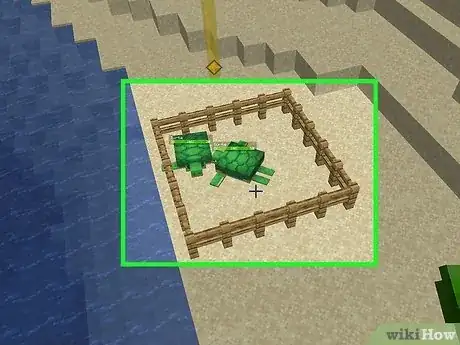
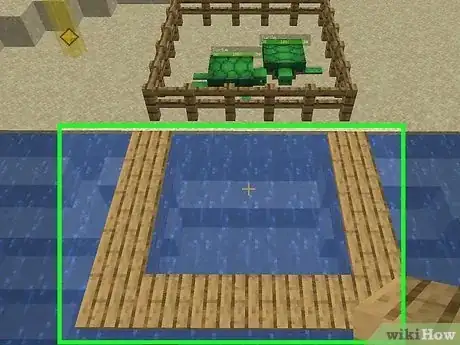
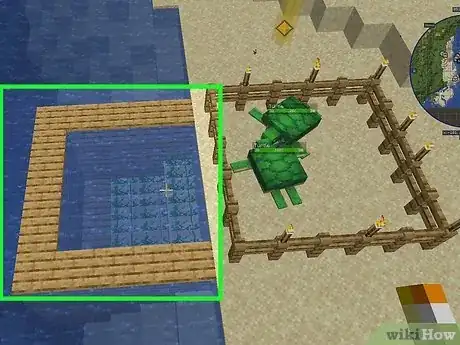
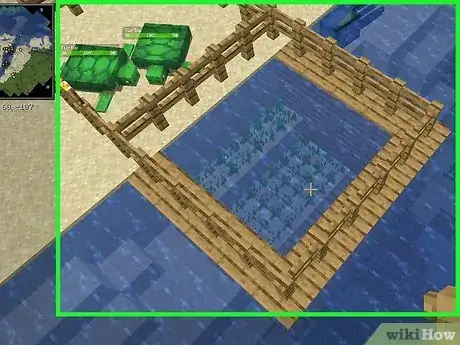
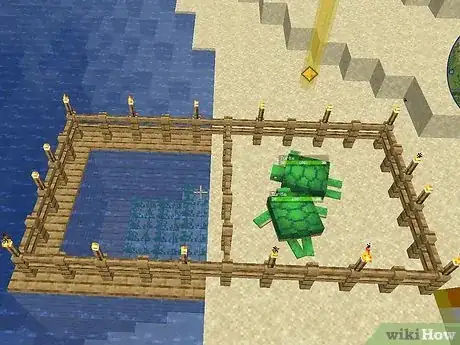
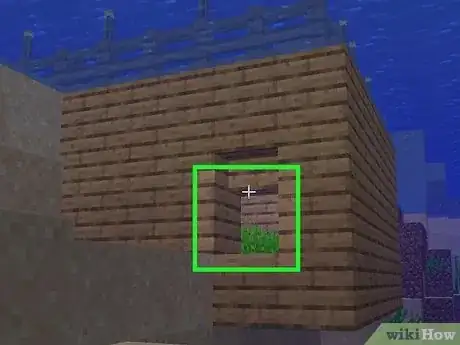
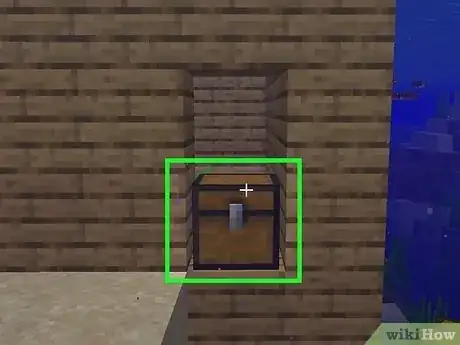
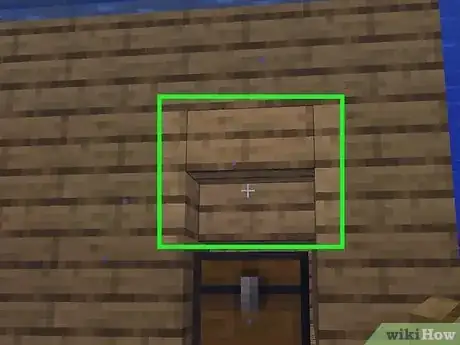
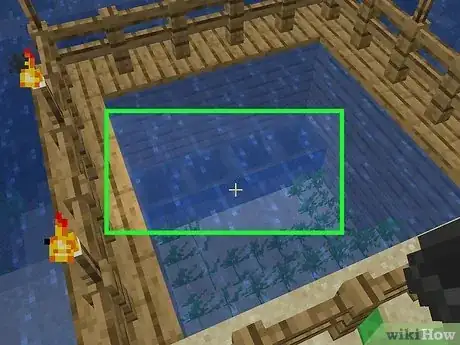
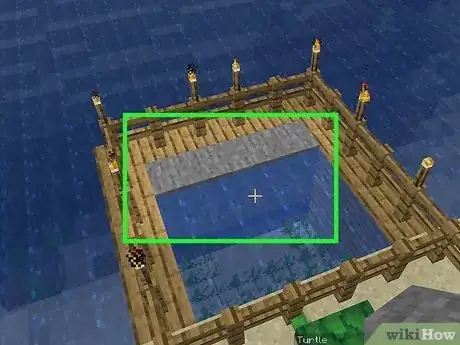
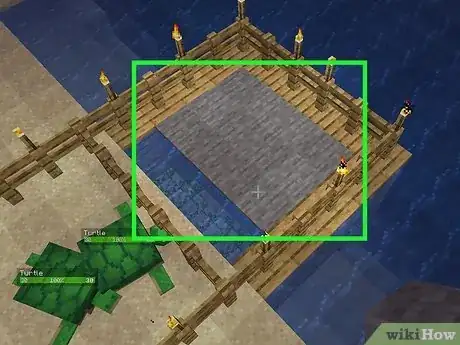
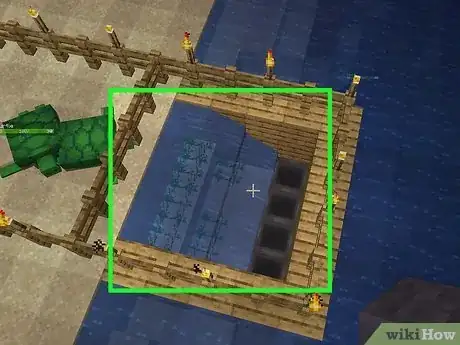
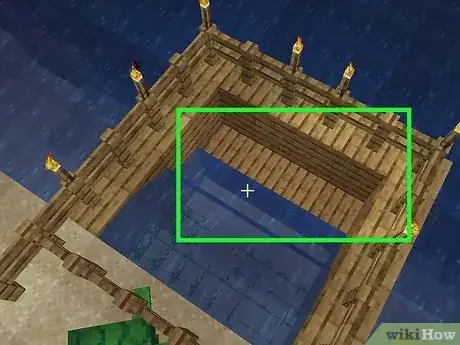
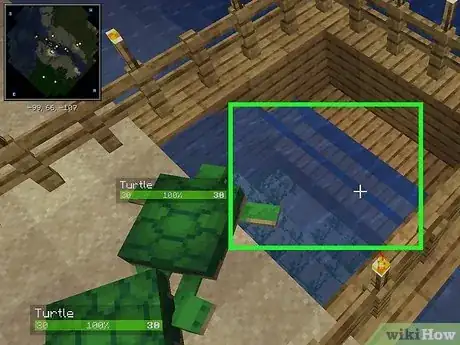
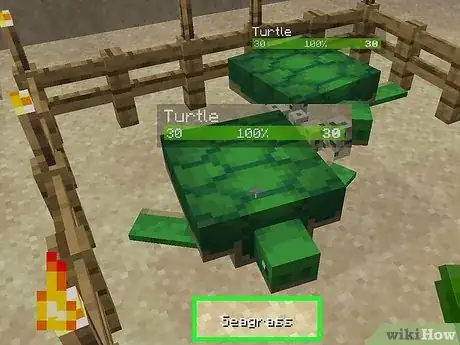
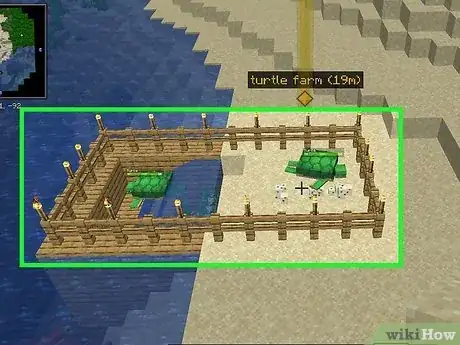
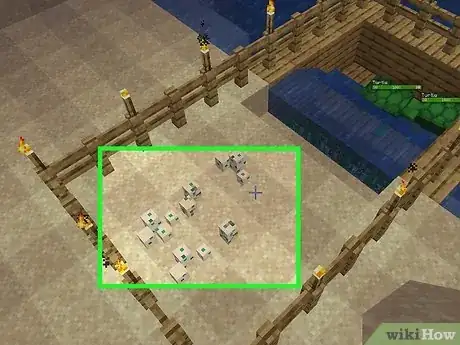
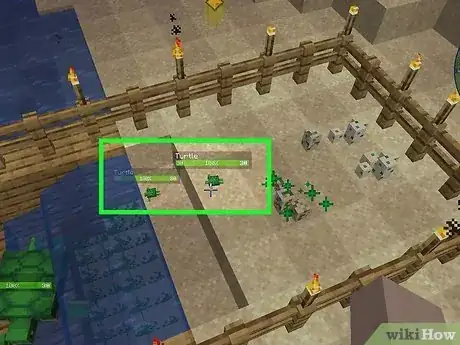
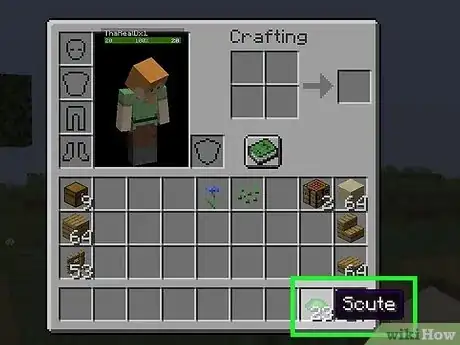
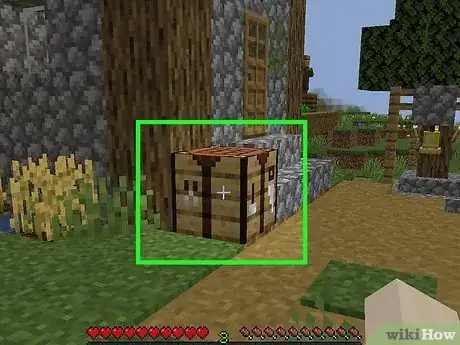
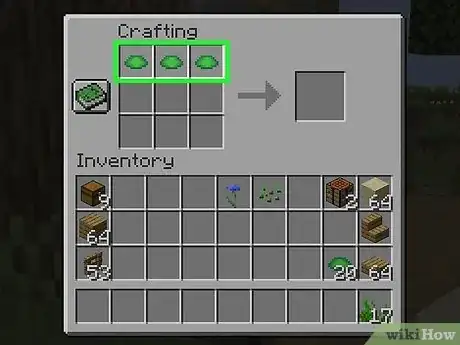
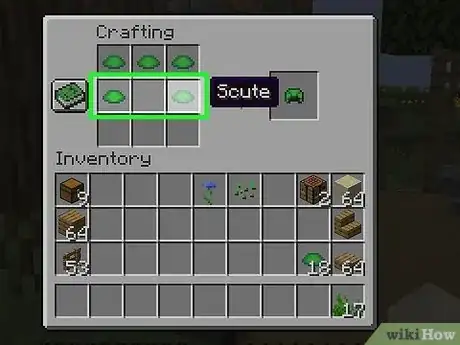
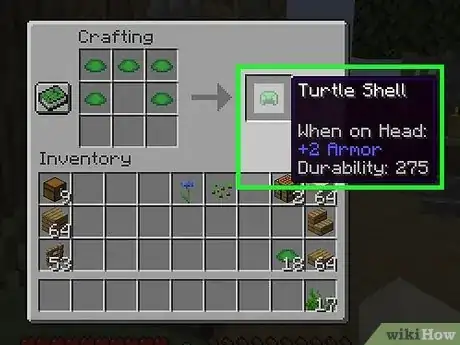
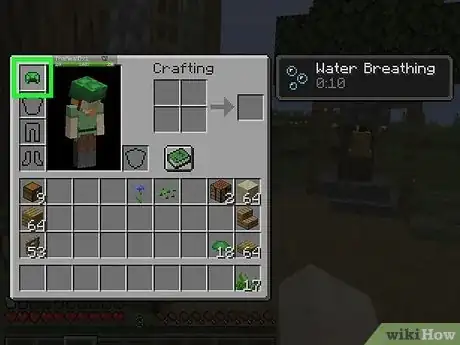
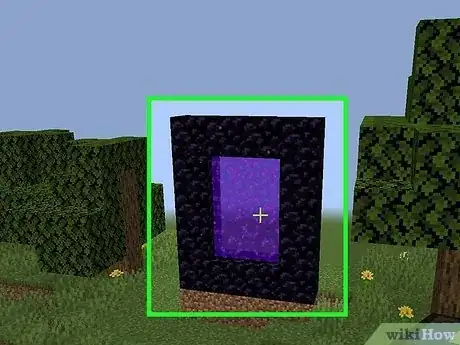
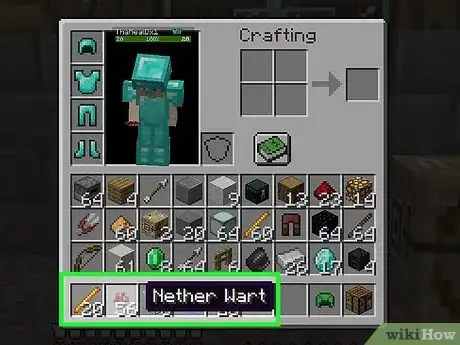
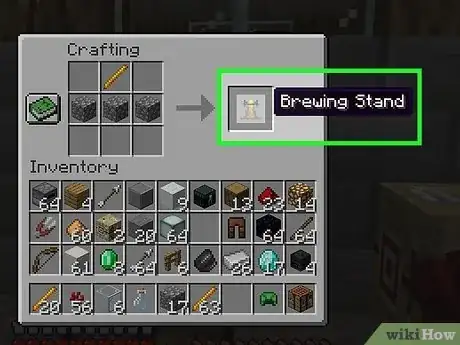
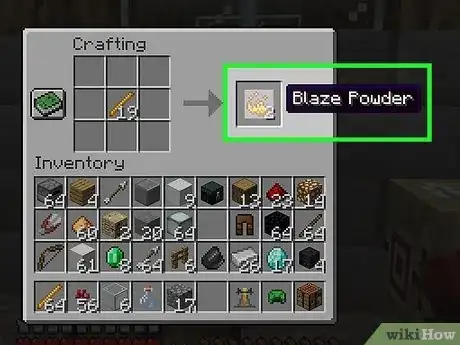
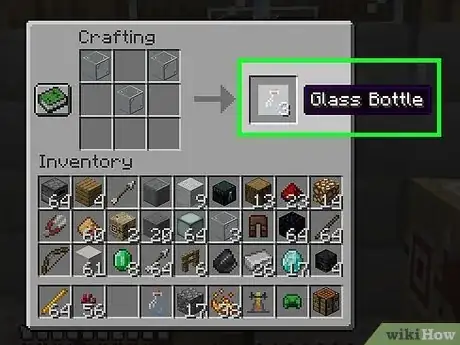
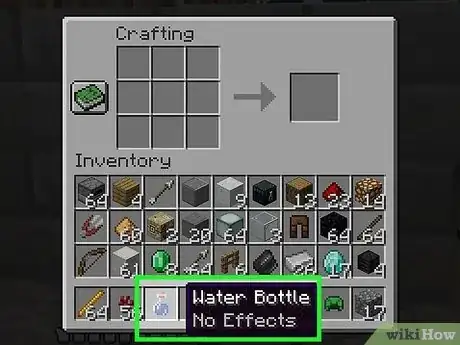
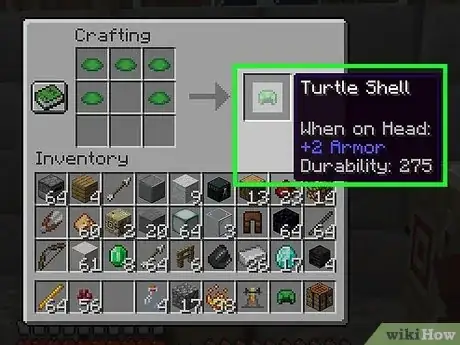
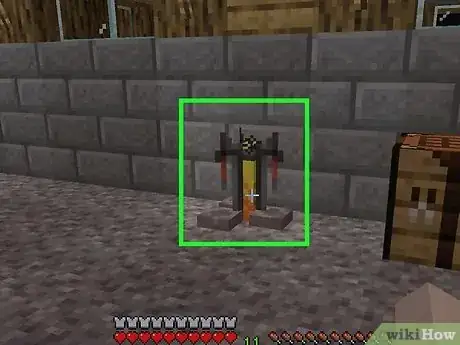
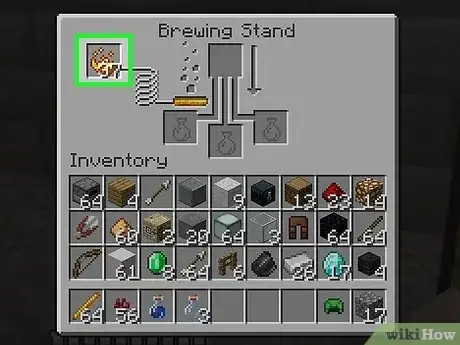
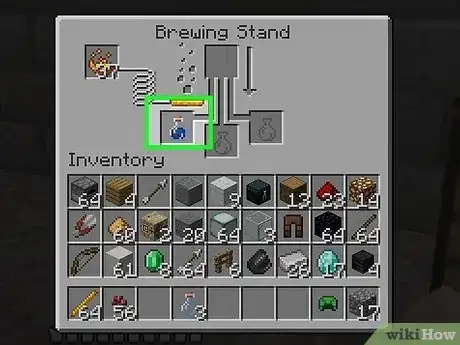
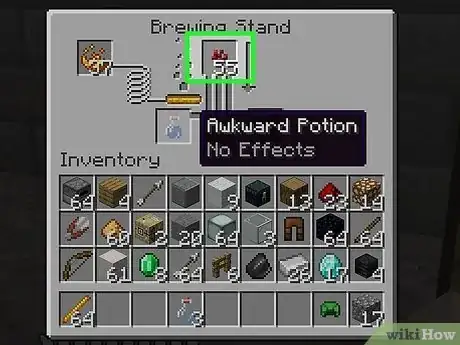
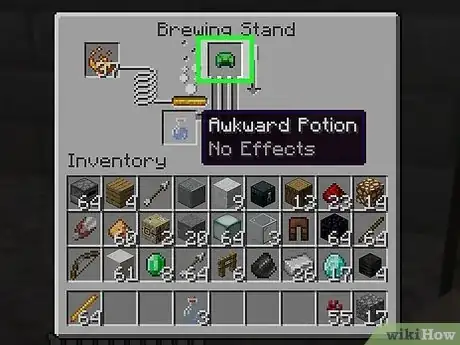

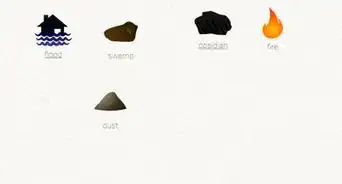

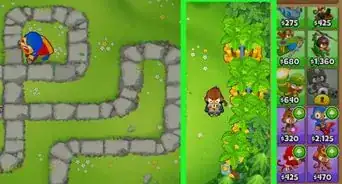
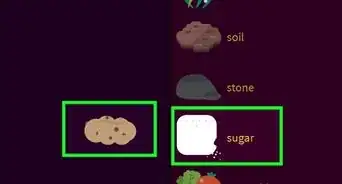


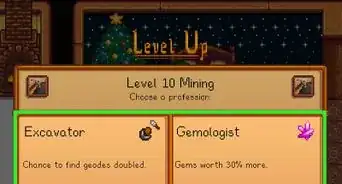
-Step-13.webp)

